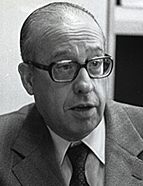

Another historian’s (supposedly Armando Cortesão, who had recently become a supporter of the Estado Novo [New Regime] regime he had erstwhile fought) response to the author was that this work was “overly economic, quasi- Marxist” and that the book’s main flaw was that it focused solely on economics! Plainly, a blatant lie. The reasons for this rejection were altogether different, coherent with Salazar’s reasoning and conduct. Salazar, or others on his behalf, as it should be noted that Infante D. Henrique was a key symbol of religious devotion aligned with the dictatorship. Daring to question the sanctity, as it were, of the chaste knight was shocking indeed. “Such great impudence passes for wit.”
A Economia dos Descobrimentos Henriquinos does not deal with economics alone, as argued presumably from ignorance. The difficulty lay precisely in the way economics, society and culture were intertwined, whether in harmony or in conflict. This was not good for those who, in the run-up to the colonial war, needed to make a pure visionary of Prince Henry, a chaste saviour of the souls of slaves (sold with a view to converting them to the Catholic faith – according to the unforgettable description made by Zurara...). If the truth be told, Magalhães Godinho belittled Prince Henry as the angelical figure who was forced to abandon the abrupt cliffs of Sagres to move to tough concrete economic, social, and political conditions where he may have stood out but did not dominate: other figures, other forces at stake, other diversified competing interests were present. And Portugal is not a rectangle cut off from the motivations and strategies of the neighbouring peoples of the Mediterranean or the Atlantic.
Expelled from the university, Magalhães Godinho remained in Portugal as an editor, writer, researcher, and literary director of several publishing houses. At Sá da Costa, he prepared and partially re-wrote the Portuguese edition of Enciclopédia Focus [Focus Encyclopaedia]. Again, with Cosmos, this time with the collection Rumos do Mundo (Destins du Monde/World Destinations), of Febvre – Braudel, the very same Cosmos where shortly before he had edited, annotated, and compiled the scattered works of Duarte Leite. He resumed his work on the collection project “A Marcha da Humanidade”. Among other works, he gave a valuable contribution to the Dicionário de História de Portugal [Dictionary of the History of Portugal] edited by Joel Serrão, where many of the articles later to be published in his indispensable Ensaios [Essays] appear. He also published the magnificently illustrated Portuguese edition of his doctoral thesis.
